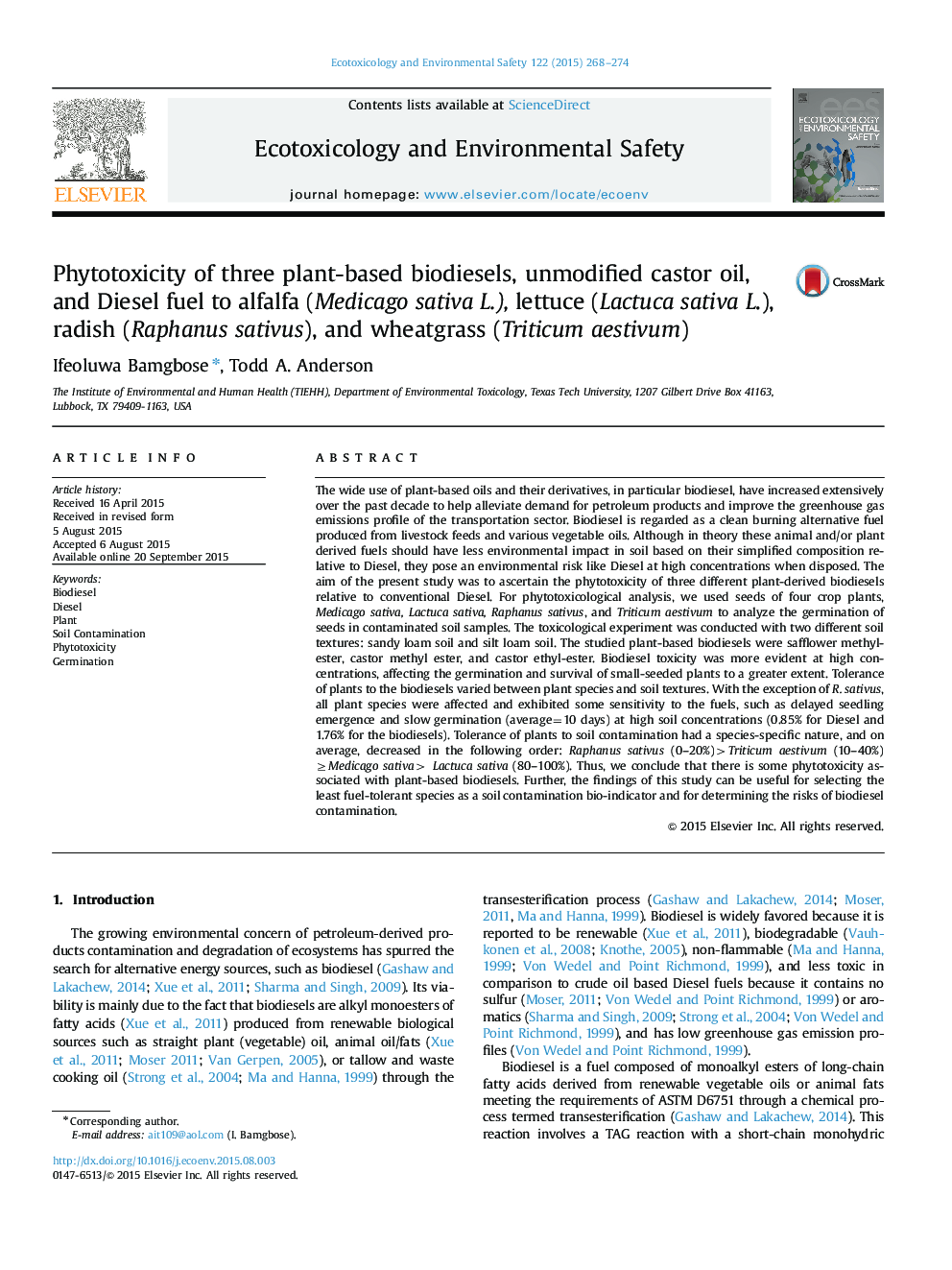| کد مقاله | کد نشریه | سال انتشار | مقاله انگلیسی | نسخه تمام متن |
|---|---|---|---|---|
| 4419525 | 1618941 | 2015 | 7 صفحه PDF | دانلود رایگان |

• Examined the relative toxicities of three plant-based biodiesels (SME, CME, and CEE) to Diesel.
• Examined the toxic effects of the fuels on four plant species in sandy loam soil and silt loam soil.
• High concentrations of SME, CME, and CEE delayed germination and seed emergence.
• Lettuce was most sensitive, while radish was least sensitive to SME, CME, CEE, and Diesel.
The wide use of plant-based oils and their derivatives, in particular biodiesel, have increased extensively over the past decade to help alleviate demand for petroleum products and improve the greenhouse gas emissions profile of the transportation sector. Biodiesel is regarded as a clean burning alternative fuel produced from livestock feeds and various vegetable oils. Although in theory these animal and/or plant derived fuels should have less environmental impact in soil based on their simplified composition relative to Diesel, they pose an environmental risk like Diesel at high concentrations when disposed. The aim of the present study was to ascertain the phytotoxicity of three different plant-derived biodiesels relative to conventional Diesel. For phytotoxicological analysis, we used seeds of four crop plants, Medicago sativa, Lactuca sativa, Raphanus sativus, and Triticum aestivum to analyze the germination of seeds in contaminated soil samples. The toxicological experiment was conducted with two different soil textures: sandy loam soil and silt loam soil. The studied plant-based biodiesels were safflower methyl-ester, castor methyl ester, and castor ethyl-ester. Biodiesel toxicity was more evident at high concentrations, affecting the germination and survival of small-seeded plants to a greater extent. Tolerance of plants to the biodiesels varied between plant species and soil textures. With the exception of R. sativus, all plant species were affected and exhibited some sensitivity to the fuels, such as delayed seedling emergence and slow germination (average=10 days) at high soil concentrations (0.85% for Diesel and 1.76% for the biodiesels). Tolerance of plants to soil contamination had a species-specific nature, and on average, decreased in the following order: Raphanus sativus (0–20%)>Triticum aestivum (10–40%)≥Medicago sativa> Lactuca sativa (80–100%). Thus, we conclude that there is some phytotoxicity associated with plant-based biodiesels. Further, the findings of this study can be useful for selecting the least fuel-tolerant species as a soil contamination bio-indicator and for determining the risks of biodiesel contamination.
Journal: Ecotoxicology and Environmental Safety - Volume 122, December 2015, Pages 268–274